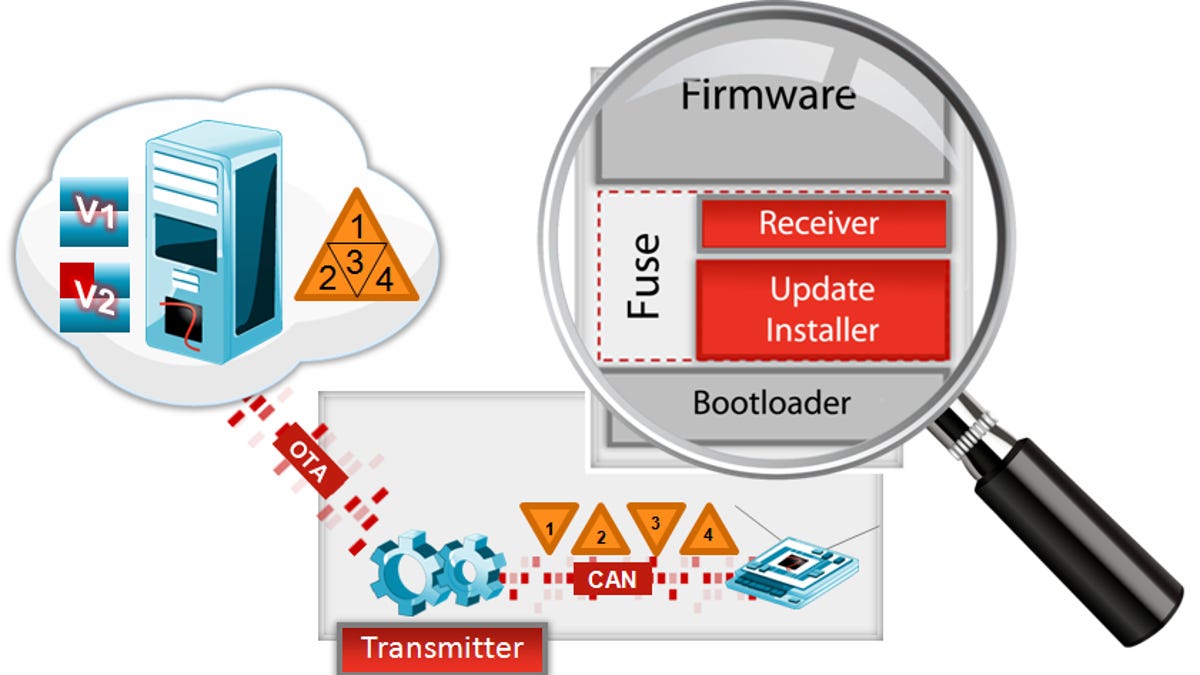Car firmware need updating? Red Bend hopes to make it easy
Red Bend Software's Fuse is designed to let automakers tweak their cars' computing systems wirelessly -- even the wimpy microcontrollers with tiny amounts of memory.

What do you get when you cross the software auto-update era with the cars reworked by the computing industry?
A lot of trips to the dealer to have your engine's combustion algorithm tuned and your lasers recalibrated.
Naturally, when such problems arrive, businesses are keen to profit from solving it. That's the case for Red Bend Software, which on Tuesday announced its FUSE technology that enables over-the-air updates.
Smartphones and computers don't have much trouble with software updates, since they're relatively powerful devices. Fuse -- short for firmware updating of small electronics -- is designed for much more limited computing systems, though.
Its installer needs only 7KB of memory to run, and the software can download updates in lots of small pieces and over very slow networks. That small size is useful for the small electronic control units (ECUs) that control things like a car's heating, ventilation, and air-conditioning system, which typically has something between 256KB and 1.5MB of memory, the company said.
"ECUs are becoming more powerful in the vehicle, but they're increasingly overworked as [car manufacturers] seek to combine multiple functionalities onto one ECU," said Richard Kinder, vice president of technology and new business for the company. Consequently, the amount of spare computing resources isn't actually increasing, he said.
The company also announced the software works with Freescale's Qorivva MPC560xB/C/D family of microcontroller chips for automotive electronics.

